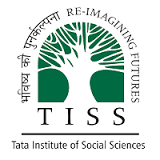About This Course
Assistive technology, in its various forms, serves as a beacon of hope for millions of individuals with disabilities worldwide. Assistive technology can transform how individuals with disabilities access the world around them.
Its need is particularly pronounced in the Global South, where inequities in access to healthcare and support systems are often exacerbated. In India, individuals with disabilities face significant barriers to education, employment, and social participation. Assistive technology bridges this gap by providing tailored solutions that enable, enhance mobility, communication, daily living activities, educational and career opportunities.
However, a stark inequity persists, as many in the Global South lack access to these life-changing technologies due to economic constraints, limited healthcare infrastructure, and awareness gaps. Addressing this disparity is not just a matter of technological advancement; it's about reshaping societal structures and priorities to ensure that everyone, regardless of their geographical location and socio-economic status, can benefit from the transformative potential of assistive technology, ultimately fostering a more inclusive and equitable world.
This course offers an overview of Assistive Technology (AT) for individuals with mild disabilities as well as extensive support needs. It explores the consideration process, implementation, and evaluation of AT for these individuals.
This two-credits modular certificate course is a part of the 20 credits Executive Certificate Program on Teaching and Learning Design with Technology
The course will be offered in a hybrid format.
In-person attendance is recommended on December 17th, 2024 and January 6th-8th, 2025, for key workshops and interactive sessions.
Course Outcomes
By the end of the course,
-
Students will have a comprehensive understanding of assistive technology, including its principles, applications, and impact across various disability categories. They will be able to explain the differences between the medical, social, and bio-psycho-social models of disability and analyze how these models influence the design and implementation of assistive technology solutions.
-
Students will develop the skills necessary to assess the needs of individuals with disabilities and select appropriate assistive technology solutions. They will be able to conduct thorough assistive technology needs assessments, consider user-centered design principles, and match assistive technology tools to the specific requirements of individuals with disabilities.
Note: The best way to access this course is through a laptop/desktop or TISSx mobile app.
Content Outline

| Sr.No |
Units covered |
| 1 |
Introduction to Assistive Technology (AT)
|
| 2 |
Types of Disabilities and Assistive Technology Solutions
|
| 3 |
Assessing and Selecting Assistive Technology
|
| 4 |
Assessing and Selecting Assistive Technology
|
| 5 |
Emerging Trends and Innovations
|
Who can join the course?
The course will be available to all individuals who:
- Hold a bachelor's degree in a relevant field.
- Are currently employed in the field of assistive technology and seeking to enhance their skills.
- Are invited for the MA in Education and Technology (MAET) program.
Course Staff
Dr. Radhika Misquitta, Co-Principal, Gateway School of Mumbai
Radhika has a PhD in Special Education (Learning Disabilities) from the University of Texas at Austin, and an M.Ed in Special Education, and B.Ed. in Special Education from SNDT Women’s University, Mumbai. She is a founding member of the Gateway School of Mumbai. Her interests are in teacher education, in developing systemic supports for supporting children with disabilities,and in how technology can be harnessed to optimise learning. At Gateway, Radhika teaches Language to the High School students,supports with teacher development, strategic planning, and with the research department.
Mr. Shankar Subbiah, Director - Human Resources & Administration
Shankar Subbiah S., is a seasoned IT professional working as Assistive Technology and Accessibility Consultant. Based in Chennai, he has over a decade of experience in implementing inclusive technology solutions and is committed to the principle of "Inclusion is Equality, Accessibility is the Key." He works with National Institutions, Government Departments, Colleges and Universities, and as a resource person for Educational Institutions on technology enabled education, assistive technology training, accessible resource libraries for children and adults with disabilities and stakeholders.
He has worked on designing and implementing various projects based on ICT for education and livelihoods with International Developmental sector Organisations like Leonard Cheshire UK, CBM, Bookshare.org and other CSR Organisations across South Asia. He contributed in the sub-committee for developing the eContent Guidelines for Children with Special Needs and Inclusive ICT Labs as part of experts group in the country. He also continues his three decades of IT career as a HR and Admin Director in Edify Technologies India now, an Offshore Development Centre for the US based IT corporate leveraging his development, management skills and enriching them. He mentors and works with many Assistive Technology start-ups in India for developing user centric solutions.




